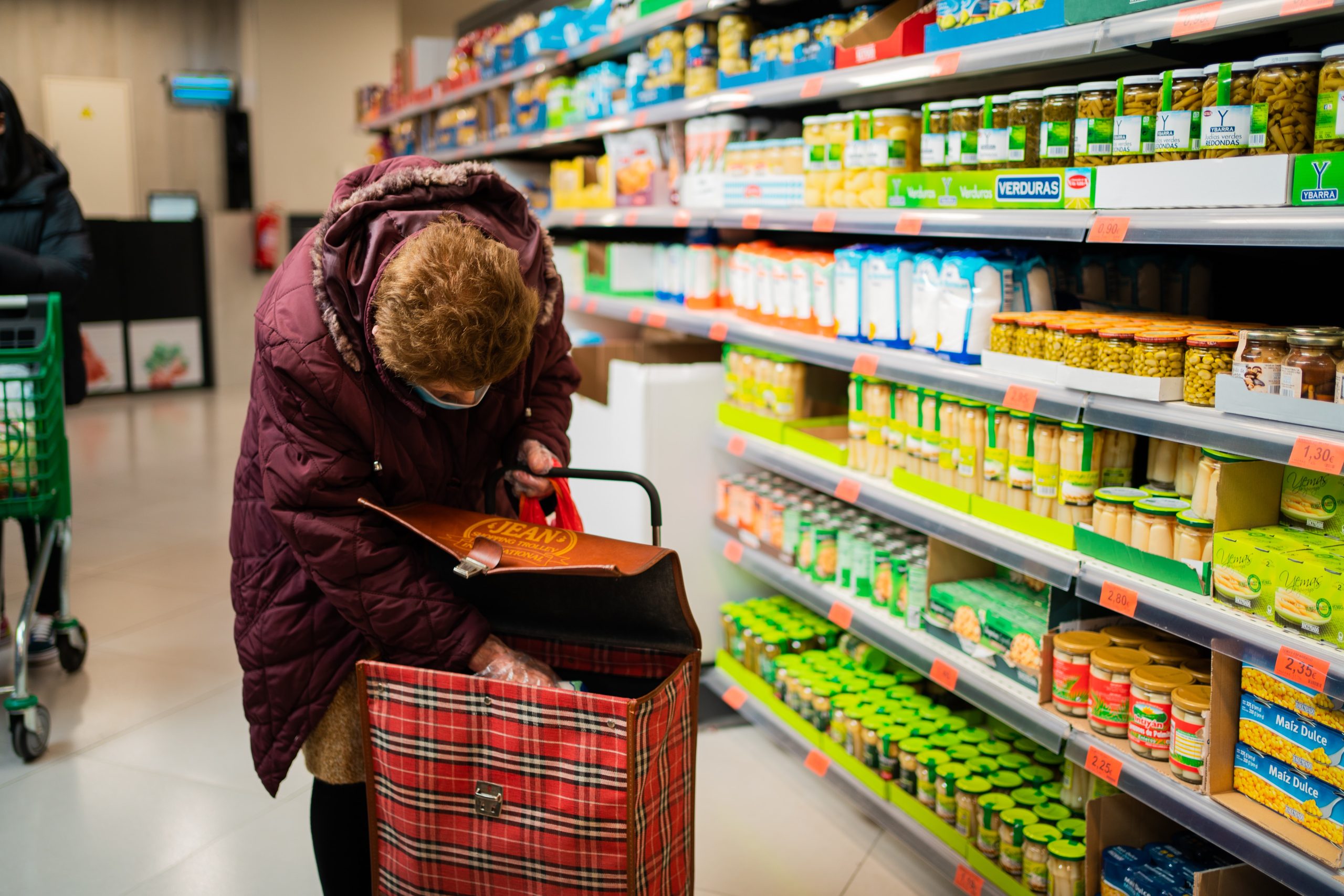Lifestyle
Feeling lonely? Too many of us are. Here’s what our supermarkets can do to help

A supermarket chain in the Netherlands is helping to combat loneliness with so-called “slow” checkouts where chatting is encouraged. (File Photo: Victoriano Izquierdo/Unsplash)
Even before COVID-19, social isolation and loneliness were all too common across the community. Living among millions of other people is no comfort for people in cities, where the pace of life is often hectic, and technology and digitisation often limit, rather than help with, social interaction.
The pandemic amplified these problems. In its wake, more of us report we’re lonely.
For some, a weekly shopping trip may be the only chance to interact with others. A supermarket chain in the Netherlands is helping to combat loneliness with so-called “slow” checkouts where chatting is encouraged. Could a similar approach work here?
We’re getting lonelier
Around a third of Australians report feeling lonely. One in six experience severe loneliness.
According to the annual Household, Income and Labour Dynamics in Australia (HILDA) Survey, people aged 15 to 24 report the greatest increase in social isolation over the past 20 years and the highest rates of loneliness. Another Australian survey found men aged 35 to 49 had the highest levels of loneliness.
Loneliness and social isolation are not the same. Social isolation is a matter of how often we have contact with friends, family and others, which can be measured.
Loneliness is more subjective. It describes how we feel about the “quality” of our interactions with others.
Technology is contributing to high rates of loneliness. Instead of meaningful face-to-face interactions, many of us now rely on social media, phone apps and video calls to socialise.
We’re also working longer hours, often at home. And due to the cost of living, many of us are choosing to stay home and save money, rather than eat out or go to “the local”.
It isn’t only in Australia where this is happening. In the UK, around 3.9 million older people say television is their main company. Half a million may go five or six days a week without seeing anyone.
The World Health Organisation recognises loneliness and social isolation as public health issues and priorities for policymakers. These issues seriously affect people’s mental and physical health as well as longevity. The impacts are comparable with other risk factors such as smoking, alcohol consumption, obesity and not being physically active.
Could slow, ‘chatty’ checkouts be part of the solution?
For many, a visit to the supermarket may be the only time they interact with others. Sadly, increased use of technology, including self-serve checkouts, and cashiers tasked with speedily processing customers can make it challenging to have a conversation.
Four years ago, the Netherlands’ second-largest supermarket chain, Jumbo, introduced Kletskassa or “chat checkout”. It’s for shoppers who want to chat and aren’t in a hurry. Recognising loneliness was an issue for many, the idea was to increase social interaction between customers and staff by slowing things down and encouraging conversation.
Jumbo’s chief commercial officer, Colette Cloosterman-van Eerd, explained:
Many people, especially the elderly, sometimes feel lonely. As a family business and supermarket chain, we are at the heart of society. Our shops are an important meeting place for many people, and we want to play a role in identifying and reducing loneliness.
The first Kletskassa, in Vlijmen in Brabant, was so successful the family-owned company started rolling out slow checkouts in 200 of its stores. Not only were customers responding positively, the concept also appealed to Jumbo’s employees. They are trained to recognise signs of loneliness and come up with local initiatives to combat social isolation.
Cloosterman-Van Eerd said:
We are proud our staff want to work the chat checkout. They really want to help people and make contact with them. It’s a small gesture but it’s a valuable one, particularly in a world that is becoming more digital and faster.
The original focus of Jumbo’s initiative was older shoppers. However, the trial showed people of all ages were keen to use the Kletskassa. The desire for human interaction didn’t change across age groups.
So, these “chatty” checkouts are open to anyone who will benefit from social connection. Some Jumbo stores also have an All Together Coffee Corner, where locals can enjoy a coffee and chat with neighbours and volunteers who also help out with shopping and gardening.
The Netherlands’ government is partnering a range of organisations, local government and companies to come up with solutions to combat loneliness across the country. Some 50% of the 1.3 million people over 75 report they regularly feel lonely. Jumbo’s initiatives are part of the Health Ministry’s One Against Loneliness campaign.
Supermarkets as ‘third places’ to combat loneliness
In the 1980s, sociologist Ray Oldenberg coined the term “third place” – a place that’s not home (the “first place”) and not work (the “second place”). Third places are familiar public spaces where people can connect over a shared interest or activity.
Libraries, coffee shops, book stores, community gardens, churches, gyms and clubs are examples of third places. They all provide the opportunity for close proximity, interaction and often serendipitous conversations with other people we might not usually meet.
Kletkassa have helped thousands of people, of all ages and backgrounds, by providing a few minutes of kindness and conversation. Imagine what could be achieved if our supermarkets offered their own version of the “slow checkout” for anyone who’s in need of a chat to brighten their day.
The first chain to introduce this sort of initiative in Australia would have a solid advantage over competitors through differentiation and prioritising customers. At the same time, it would make a small but meaningful contribution to improving social wellbeing.
Challenge extended!![]()
Louise Grimmer, Senior Lecturer in Retail Marketing, University of Tasmania
This article is republished from The Conversation under a Creative Commons license. Read the original article.





















